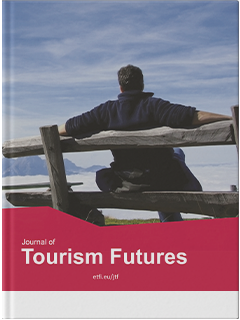Future strategies for tourism destination management: post COVID-19 lessons observed from Borobudur, Indonesia
IF 5.8
Q1 HOSPITALITY, LEISURE, SPORT & TOURISM
引用次数: 1
Abstract
PurposeThe purpose of this viewpoint paper is to show practical post COVID-19 observations as lessons for the future of tourism destination management and help inspire the tourism industry and academic community.Design/methodology/approachThis paper is based on observations by, and discussions among, both international and Indonesian tourism experts and relate to the case of the famous UNESCO World heritage site, the Borobudur temple, in Indonesia.FindingsAs a result, the authors observed the following measures that have been taken by the local authorities; setting limits to the amount of visitors, increase the visitor area, provide guided tours only, work with price mechanism, mitigate the physical impacts of visits and involve the local community in the value chain. The paper shows that the COVID pandemic has unintentionally created urgency and an opportunity for the local authorities to deal with already ongoing and structural overtourism related issues. This demonstrated that a lockdown was needed to get out of a lock-in.Originality/valueThis paper fits in the ongoing debate on the effects of COVID-19 pandemic on the tourism sector. As it provides a practical case, the values of this paper lie in bridging the gap between conceptual contributions to the debate and practical observations. Also many links with the continuation of the overtourism debate are made.旅游目的地管理的未来战略:从印度尼西亚婆罗浮屠观察到的2019冠状病毒病后的教训
目的通过对新冠肺炎疫情后的实际观察,为未来旅游目的地管理提供借鉴,并对旅游业界和学术界有所启发。设计/方法/方法本文基于国际和印尼旅游专家的观察和讨论,并与著名的联合国教科文组织世界遗产——印度尼西亚婆罗浮屠寺的案例有关。结果,作者注意到地方当局采取了下列措施:限制游客数量、增加游客面积、只提供导赏团、配合价格机制、减轻游客对自然环境的影响,并让当地社区参与价值链。该论文表明,新冠肺炎疫情无意中为地方当局处理已经存在的结构性过度旅游相关问题带来了紧迫感和机会。这表明,要想摆脱禁闭,需要进行禁闭。本文符合正在进行的关于COVID-19大流行对旅游业影响的辩论。由于它提供了一个实际案例,本文的价值在于弥合辩论的概念贡献与实际观察之间的差距。此外,还有许多与持续的过度旅游辩论有关。
本文章由计算机程序翻译,如有差异,请以英文原文为准。
求助全文
约1分钟内获得全文
求助全文
来源期刊

Journal of Tourism Futures
HOSPITALITY, LEISURE, SPORT & TOURISM-
CiteScore
15.70
自引率
6.00%
发文量
64
审稿时长
34 weeks
期刊介绍:
 求助内容:
求助内容: 应助结果提醒方式:
应助结果提醒方式:


